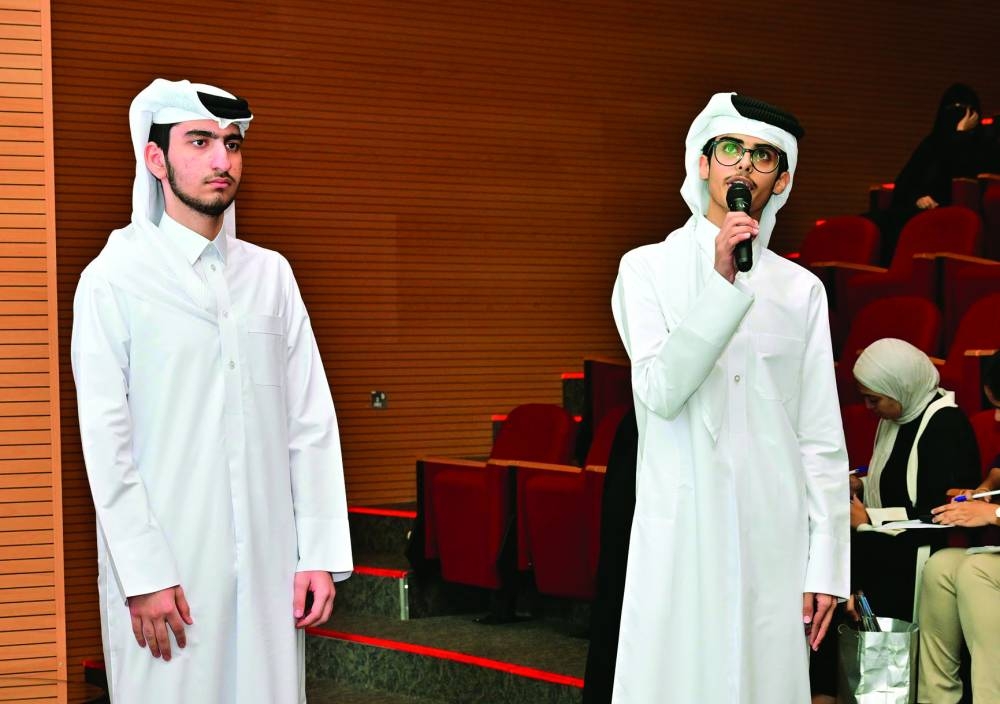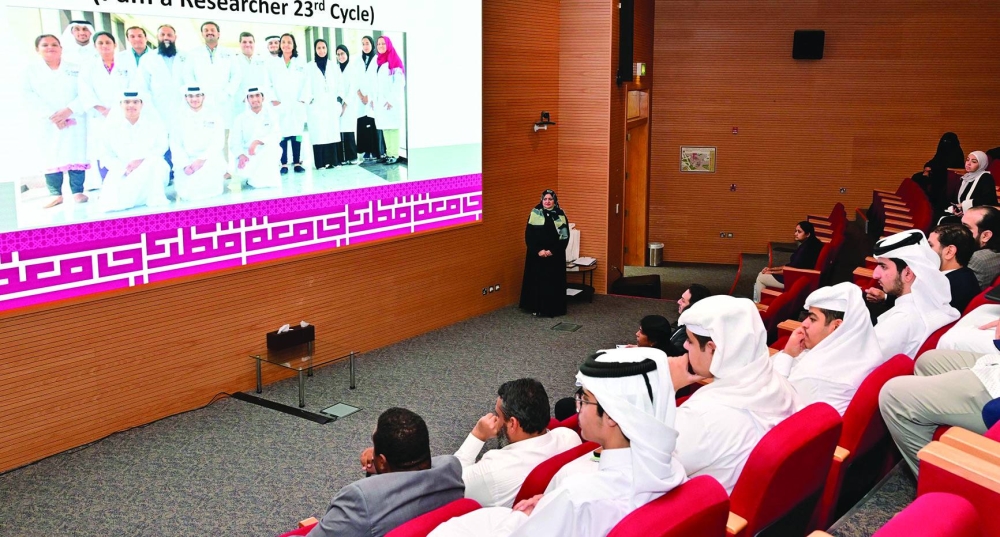The Qatar University Young Scientists Centre (QUYSC) concluded the fourth edition of the Innovation and Design Thinking programme with an event featuring participation of six preparatory schools.
The programme included a series of scientific workshops and interactive activities applying the STEM approach—synthesising science, technology, engineering, and mathematics.
Emphasising design-thinking methodologies, these workshops instil practical and cognitive strategies, honing students’ problem-solving skills through the application of acquired knowledge and scientific concepts. The ultimate goal is to encourage effective utilisation of these skills in the creation of diverse projects and products.
Prof Noora Jabor al-Thani, director of QUYSC, highlighted: “Empowering the younger generation with design thinking skills cultivates a growth mindset, problem-solving abilities, critical thinking skills, and fosters innovation. It involves applying a creative and systematic approach to teaching various sciences, guiding students through stages of exploration, ideation, experimentation, and evolution, all in pursuit of innovative solutions to contemporary challenges.”
Prof Noora al-Thani thanked QUYSC partners, including the National Committee for Education, Culture, and Science and the Unesco Office in Doha, for their support. The programme’s fourth edition saw the participation of 131 students from six preparatory schools: Ibn Khaldoun Preparatory School for Boys, Religious Secondary Preparatory Institute for Boys, Doha Preparatory School for Boys, Osama Bin Zaid Preparatory School for Boys, Al-Ahnaf Preparatory School for Boys, and Al Jazeera Academy.
Following the workshops and project development phase, a team from QUYSC evaluated all groups, selecting the top contenders for the closing ceremony. During the final competition, six selected groups showcased innovative projects focused on reducing heat loss through the implementation of design thinking strategies. A panel of engineers and researchers from QU judged these projects.
In the closing ceremony event, the winning groups were honoured: “Scientists of Tomorrow” from the Religious Secondary Preparatory Institute for Boys claimed the first position, followed by “Al-Ahnaf” from Al-Ahnaf Preparatory School for Boys securing the second position, and “The Inventors” from Ibn Khaldoun Preparatory School for Boys achieving the third position. QUYSC also recently concluded its 23rd annual “I am a Researcher” programme which fosters innovation among high school students. The valedictory event celebrated the achievements of students who clinched first place for their research projects.
The “I am a Researcher” programme stands as a cornerstone initiative of the QUYSC, aimed at cultivating a spirit of innovation, discovery, and critical thinking among high school students. Aligned with Qatar’s National Vision 2030, this programme fortifies the country’s strategy toward an innovation-based economy by empowering young minds to delve into practical research methodologies.
Diverse scientific research proposals submitted by professors at the QUYSC saw participation from four secondary schools: Ahmed bin Hanbal High School for Boys, Umm Hakeem High School for Girls, Al Maha Academy for Boys, and Hind Bint Abi Sufyan High School for Girls.
The scientific research topics were diverse and included the fields of chemistry, materials science, earth and environmental sciences, and energy. The projects were executed over two months within QU laboratories.
The first place went to Al-Sinbouk team consisting of Hussein al-Khayyat, Rabiaa al-Kuwari, Fahd al-Hashimi, and Mohamed al-Marri from Al-Maha Academy for Boys, for a project entitled “Combustion and Emissions Characteristics of a Diesel Engine Using a New Biodiesel.”
The “Masho” team from Ahmed Bin Hanbal High School for Boys, consisting of Tamim al-Yafei, Ali al-Khayyat, Ibrahim al-Ziyara, and Khalifa al-Nasr, were recognised for their commitment to sustainable research practices for research entitled “Recycling waste tire rubber powder in a sustainable manner”.

Participants at the conclusion of ‘I am A Researcher’ programme.

A section of the audience at the conclusion of ‘I am A Researcher’ programme.
